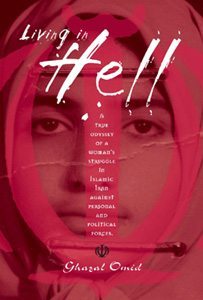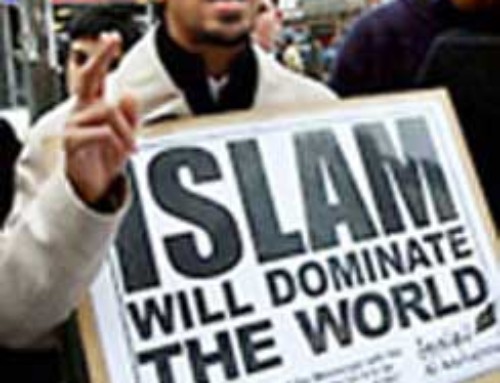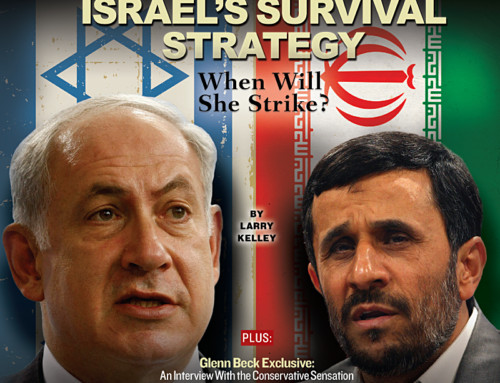By 1428, what remained of free France seemed doomed to become another vassal province of England. All French lands north of the Loire River had been lost with Burgundian and Parisian soldiers now fighting on the side of the English.
That year a 17-year-old farm girl who had been receiving visions of the archangel, Michael, convinced what remained of the French nobility and a skeptical clergy to allow her to lead the dwindling French armies in their ever more desperate war to wrest France from British domination.
In the tradition of the “French Maiden,” Iranian heroines living in the Western U.S. and Canada are now in the vanguard of those seeking revolution and regime change in Iran.
Living Dangerously
Before the fall of the Shah, Pari Abasalti had been a member of Parliament, and the editor in chief of the leading women’s magazine in Iran. Today she runs a Farsi and English-language magazine published in the U.S. and hosts a radio program called “Wheel of Time” on the Los Angeles-based station KSRI.
The radio station and website, KSRI.com, which reports news of and advocates for the overthrow of Mullahs is broadcasted into Iran via satellite and Internet. This is a dangerous business. With the recent sham elections, the Mullahs have now appointed Mahmoud Admadinejad to the presidency of Iran.
In 1979, it was Admadinejad who was a ringleader in the U.S. embassy takeover, and later moved over to being an interrogator and torturer of political prisoners. But what is most chilling, from there, is that in 1986 he became a senior officer in the Special Brigade of the IRGC that conducted “extra-territorial operations,” and was the senior planner of a series of assassinations in the Middle East and Europe, including the assassination of Iranian Kurdish leader Abdorrahman Qassemlou, who was shot dead in his own flat in Vienna. Ahmadinejad was a key planner of the attack, according to Austrian investigative journalists.
Ms. Abasalti and the other Iranian female expatriates I interviewed for this piece advocate openly for the overthrow of the regime, knowing that they are watched and in danger. But they believe that their objective is far more important than their personal safety.
Earlier this month, the KSRI website carried a story that listed the 420 political protests that occurred in Iran during the month of November. Despite this, Ms. Abasalti told me, “This doesn’t matter because the government attacks the people, arrests them and even kills them.” She went on to tell me that the demonstrations are often dispersed by pepper gas and that among the demonstrators there are plainclothes government agents who are there to grab the demonstrators and help with the arrests.
I then asked her if she thought the effort was hopeless.
“No. This president is a very stupid person.” She went on to explain that it might be that he will blunder into making it so intolerable in Iran that a critical mass will rise up to overthrow the regime. Her sentiments mirrored those who heard Ahmadinejad’s statement—“Israel needs to be wiped off the map”—and felt that his outburst aided the effort for regime change because he signaled that more appeasement and negotiation on the part of the Western powers were a fool’s errand.
Saving Lives
I spoke to Roya Teimouri, who is an Iranian woman living in Los Angeles. On the day we spoke, she was returning from a Brussels conference called Referendum for a Free Iran where Iranian expatriates from around the world gathered to begin the process of forming a new parliament outside Iran.
I asked her to tell me about her activities in support of the revolution. “I defend women and children’s rights in Iran,” she said. “I work to find out about women who are
What, I wondered, are these women’s offenses generally?
“Some are political prisoners, accused of plotting against the government. Some were taken because their husbands are in prison or are dead and they are convicted prostitutes, selling their bodies on the street to support them and their children.”
And how successful, I asked, have your efforts been?
“We have saved some lives. But we desperately need more Americans involved in what’s happening. We need Americans.”
I also asked her if she had received any threats on her life.
“A year ago, on a day I was away from my business, two men came and told my employee that I needed to stop what I was doing because my life was in danger. I never heard from them again.”
They came from Iran, she said.
“They spoke in Farsi. Once I started to become an activist, I just trust in God and do what I have to do.”
Culture of Islam
 I met and interviewed another female revolutionary from Iran, Ghazal Omid, who lives in Western Canada but was here in San Francisco to promote her new book about her life in and escape from Iran.
I met and interviewed another female revolutionary from Iran, Ghazal Omid, who lives in Western Canada but was here in San Francisco to promote her new book about her life in and escape from Iran.
Appropriately titled Living in Hell, her moving memoir caused two reactions in me, one that I know she hopes to discourage, the second, one that I know she hopes to elicit. Like so many in the west, after 9/11, I began to intensely study Islam, it’s founder, it’s belief system, and it’s culture and have come to belief that the faith inspires aggression toward not only the non-Muslim free world but, as symptomatic, its own female population. Secondly, I believe that we in West are in a fight with militarized wing of Islam for our very survival.
While she is a practicing Muslim and a defender of her faith, my first reaction to Ghazal’s book was that it only reinforced my view of Islamic culture, a view that theologian, Richard Neuhaus eloquently summarizes—“…Mohammed is the only founder of a major modern religion whose life falls with the bounds of pedigreed historical inquiry. Islam’s spectacular spread was brought about by brutal military conquest, rapine, spoliation, and slavery. Its culture was derived from the vanquished.”
Indeed, Mohammed’s own chroniclers describe his conversion from the pious prophet in Mecca to the brutal warlord in Medina. Historical documents record that those who joined Mohammed but then changed their minds were branded apostates and were, as such, marked for an especially brutal execution.
As a result, HUMAN EVENTS Jihad Watch columnist Robert Spencer has noted, there are no serious Islamic scholar today who argue that apostasy is not punishable by death under shari’a law. The murder of the apostate today is often carried out as it was in Mohammed’s day, by an individual who is a family member or confidant. As testament to how widespread this is, there are secret organizations inside Europe who help Muslims who wish to leave their faith, change identities and to go into hiding. And it is why it gives me pause to profile the women in this piece.
In the “Decline and Fall of the Roman Empire,” the preeminent historian of the second millennium, Edward Gibbon, records that although the prophet commanded the men of his armies to only take four wives or concubines in their holy war against the infidel, he acquired at least 14, including a Jewish woman, Raihana bint Amr, a member of the last Jewish tribe in Medina to be conquered by the Muslims. She was taken by the prophet just hours after she witnessed her own husband and father beheaded. In short, it is central to the Islamic ethos that Mohammed cannot be judged. His life is the basis on which all others are judged.
The life of Mohammed sets the precedent for Islam’s inherent aggression, best epitomized by its horrific mistreatment of its own women and eloquently described in Ghazal’s polemical account of her life inside Iran. Her story for me became therefore microcosmic for why we, in the West should view Islam as essentially aggressive.
Her book begins with her account of how young, prepubescent girls in Iran are still today sold into loveless marriages by their callous families, children sold to the highest bidders and often to utter strangers. She writes, “Discovery after the wedding of a non-virgin bride can precipitate a physical fight between the two families. The bride will be deemed immediately divorced and, not infrequently killed.” She goes on to describe how her own mother, at age 14, was first sold for a sum of about $4,000 to a family whose son was a heroine addict. Although her mother was able to secure a divorce after one year, her parents, Ghazal’s grandparents, “…treated her (mother) as an outcast; and would rather have seen her dead than divorced.”
Her story moves then to her mother’s second forced marriage to a mysterious newcomer, a man who would be the author’s father, a man with a deep secret. The wealthy stranger, who negotiated a good price, considering his bride to be was divorced, did not divulge that he had another wife and family until his new wife, the author’s mother, was seven months pregnant. By then it was much too late.
When the author was 12 years old, she had two older brothers, the oldest of which was an adult in his early 20s. And it was at this time, and for over a year, that her eldest brother began to massively molest the author. Her mother blindly loved her deviant son. Ghazal recounts her mother’s refusal to learn of own daughter’s torturous molestation during this period, exposing what can only be regarded as an example of ghastly child abuse. “She wouldn’t have believed me and could have killed me in an “honor killing,” she writes. Moreover, at this point in her narrative, the author informs the reader that her father’s dark secret was that he had had left his home town to start a new family because he had raped his sister which had resulted in her death.
Subjugated Females
This level of male-domination and cruelty meted out against women and female children is unfathomable for most Westerners. Although Ghazal is a defender of Islam, I thought that she inadvertently confirmed my view of Islam by stating that this sort of mistreatment and abandonment is experienced by females from Indonesia to Morocco. It begs the question: If the Islamic faith is not fundamentally aggressive, how is it that such cruelty, visited upon its own subjugated female population, is so universal in Islamic lands?
Ghazal’s heroics include her living through the eight-year Iran Iraq war. With her home near the front, she and her mother would go to bed many nights not knowing if they would be killed in bombing raids. Later she would be branded a subversive at her Mullah-controlled university because, like Rosa Parks, she refused to sit at the back of the classroom and refused to be silenced. She was then captured by the secret police and escaped by jumping out of a speeding car. She then fled Iran using a fraudulent Algerian passport, finding refugee status in Canada, living alone, penniless, in an alien land. Her story transcends religion and ethnic differences and connects the reader with the essence of human existence. In her struggle for freedom and survival, we in the West became her allies.
While her book deepened my conviction that Islamic culture is itself aggressive toward women, the infidel, in short anyone else it deems a worthy object of conquest, it is nevertheless an inescapable fact that Islamic peoples comprise one fifth of humanity. Secondly, we in the free world cannot hope to win the war against Islamofaciscm without heroic Islamic people who chose to side with us.
In short, my second reaction to Ghazal’s book and life overwhelmed and canceled out my first. This is because it dawned on me that it’s too late for theological debates. It’s too late for us to concern ourselves with Islam’s long-term ill effects on the world’s society. Events, especially those in Iran, have created an urgency that overwhelms and make irrelevant discussion of cultural divisions.
Preemptive Strike
The confluence of WMD and suicide Islamo-terrorists is now the greatest threat to the free world. And as Condoleezza Rice has said, “We have to be 100% effective while they need only be 1% effective.” The international left and its allies in the press have made it abundantly clear that they are convinced that President Bush is intellectually challenged, too dumb to see the wisdom of their reflexive appeasement.
My conversion, having read Ghazal’s book, made me realize, that immediately after 9/11, Bush got it. It may have been instinctive or the result of the exigencies brought on by being commander-in-chief in this new asymmetric war, but I now give him credit for immediately crafting a military response designed to create Islamic allies. I see now that it is our only option for survival and one I credit him for seeing so soon.
While I’ve been compiling this report, Iran has been very much in the news. Israeli Brigadier General, Aharon Zeevi, on November 30, in his briefing to the Knesset foreign affairs and security committee warned that if international pressure on Iran fails to bring forth results by March 2006, the world powers might as well give up, because by then it will be too late: Iran will have attained the capability to manufacture a nuclear bomb. Many military commentators are opining that Israel will not wait for Iran to possess nuclear weapons and, therefore, a preemptive strike on the Iranian nuclear weapons facilities is immanent.
Ghazal’s many contacts in Iran extend to friends working in the nuclear weapons programs. Her hometown, Ishfahan, is where one of the main weapons development centers is located, deep underground. However, she maintains adamantly that due to old, outdated equipment purchased primarily from Russia, the Iranian government won’t have a deliverable weapon for another three years. But regardless of who has a more accurate handle on the time frame, Israeli intelligence or Ghazal, time is short and all nations in the free world must view regime change in Iran as a matter of extreme urgency.
Regime Change
Today with the publication of her book, Ghazal Omid has become an important spokesperson for the Iranian Islamic and non Islamic expatriates working for regime change in Iran,. And like her sisters in arms, Pari and Roya, she is a target and cannot be adequately protected. Her excellent website, LivingInHell.com, she established to promote not just her book but her cause—the liberation of Iran. Shortly after the publication of her book, she decided to shut down her website for two months due to the high volume of death threats she was receiving. I asked her if she contacted the Canadian police and if she could give me an idea of what a typical death threat might say.
“Yes, we could trace them [the death threats]. Most of them came from Turkey, Pakistan and Iran,” Ghazal said in an almost upbeat fashion. Many said things such as—you’ll roast in hell.” The implication being when they killed her, God will send her to the devil.
“I am in touch with people who live in the West, in the [United] States and Canada, and who travel back and forth to Iran, entering the country secretly, to help with planning and organizing resistance,” she told me. “The areas where this has been most successful so far is in the Kurdhish area in the Northwest and the Khuzestan province in the Southwest, next to Iraq, where police fired into a crowd and killed 11 people just three months ago. … And by far the vast majority of the people marching in the street are women.”
Perhaps if women, those who have suffered the most under Islamic culture, provide the catalyst for regime change in Iran, they will also provide the impetus for the much-needed reformation of Islam.
Certainly, if the tyrants of Iran can be brought down before they acquire nuclear weapons, the heroes of Iran will likely be outnumbered by the heroines whose names will be known as widely in their land as Jehanne d’Arc is in Europe. Ghazal told me that the regime has already killed more than 130,000 Iranians dissidents. Therefore, it is important to reflect upon the countless Iranians who will remain nameless because they were enslaved and found no escape.





